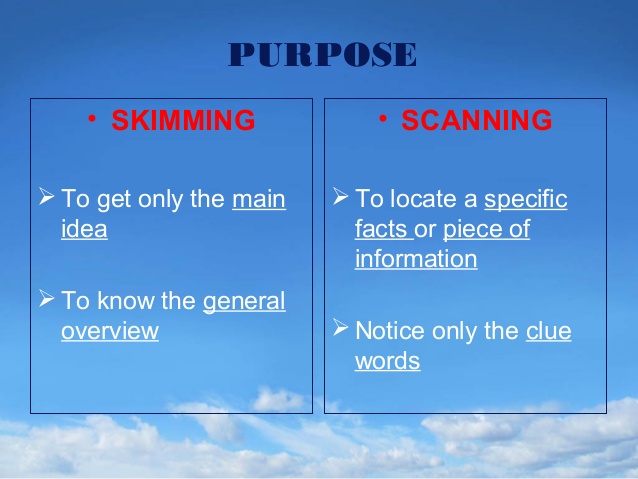Learn about IELTS Reading skills and how to do effective reading
IELTS (International English Language Testing System) is an international English test system organized at over 800 centers worldwide, assessing 4 learners' skills: listening, speaking, reading and writing with a scale of 0 to 9. IELTS is currently accepted at more than 9,000 organizations worldwide, including schools, universities, companies, foreign corporations, professional agencies and immigration.
This article will introduce you to basic information about IELTS Reading as well as how to achieve a high score in the reading section.
Types of questions in IELTS Reading section
The IELTS Reading section has all 14 types of questions . Candidates will have to read 3 paragraphs and answer 40 questions within 1 hour . These questions are always divided in different forms and usually each paragraph will have about 3 or 4 questions.

To get the highest score on the reading test, you must be sure to practice each type of question, lesson strategies as well as the most common mistakes to avoid. Below is a list of 14 types of reading skills that any IELTS officer needs to master.
1. Matching Heading
Tasks : Select a title from the list to match a paragraph in the lesson.
2. True, False, Not Given or Yes, No, Not Given
Mission : Find out if the writer's information or opinion is mentioned in the question of whether it is true for what appears in the article.
3. Matching Paragraph Information
Tasks : Giving sentence-like information and requiring you to identify what information is in the paragraph in the article.
4. Summary Completion
Mission : Complete the summary by filling in the appropriate word in the blank, you can choose from the list of available words or find the word on the article.
5. Sentence Completion
Mission : Find the appropriate word on the article to fill in the blank in the sentence.
6. Multiple Choice
Mission : A multiple choice question and you must find the best answer.
7. List Selection
Tasks : Select the correct answers from the list of words, names or information available. This type of question is different from Multiple Choice because there is only one question but there are many possible answers.
8. Choosing a Title
Mission : Select the most appropriate title for the article from an available list.
9. Categorisation Questions
Task : Categorize information into items.
10. Matching Sentence Endings
Mission : Complete the sentence by matching the first part with the end.
11. Table Completion
Mission : Complete the board by selecting the appropriate word from the article to fill in the blank.
12. Flow Chart Completion
Mission : Complete the chart by finding the appropriate word from the article to fill in the blank.
13. Diagram Completion
Mission : Complete the diagram, such as finding appropriate names of parts on a device or model based on the information contained in the article.
14. Short Answer Questions
Mission : Answer questions related to specific details in the article.
Tip high scores in IELTS Reading test
With 14 types of questions like above, you want to achieve a high score, you need to master the requirements of doing lessons and training skills to conquer each type of questions. Occasionally, the answer will appear in order, however, there is no shortage of sentences you will have to spend a lot of time to find the correct answer.
Skimming and Scanning skills

Skimming is reading a paragraph to "catch" the main idea and should do it before starting to read the question. You can spend about 2 to 3 minutes skimming, specifically reading only the main sections like the topic, paragraph headings, intro, overview and conclusions but don't try to understand it in detail. Instead, focus on the main idea. Scanning will require faster readings to find important points for specific pieces of information, such as your own name, organization name, year, initials, numbers, locations . The trick to this skill is to pay attention to the words printed in italics, italics and bold.
Develop fast reading skills
The Reading test has a limited time and you only have 1 hour to complete all 3 paragraphs. Therefore, training fast reading skills will be very helpful in helping you determine the necessary information as well as finding the right answer quickly and accurately.
Don't try to understand the whole paragraph
Your task is just to find the answers. Most of the questions will check the ability of the lion to determine the information and understand the sentence or sentence that contains that information, except the two types of Matching Heading and Choose a title will ask you to understand the content. of each paragraph / article to find the best title.
Improve vocabulary
Undeniably, having a lesson strategy or trick will help you complete the reading with no bad results. However, if you study IELTS not only to get a certificate, but also to serve for a long time, it is necessary to cultivate vocabulary.
Keywords (Keyword)
Each question will have keywords to help you determine the correct location of the information in order to find the right answer. Keywords can be a synthesized word but can also be interpreted (paraphrase) in the form of synonyms, phrases or collocation.

Grammar
Types of questions such as Summary Completion and Sentence Completion are often very much related to grammar. If you're not sure, you can choose the wrong answer.
Don't forget to practice with difficult passages
Trying complex texts from a variety of topics (such as animal, plant, mystical or economic worlds .) will help you cultivate vocabulary, and test My reading ability is very effective.
Be realistic
If you are not qualified, do not set a goal to reach Band 7. You should have a smart increase strategy to test effectively without feeling too pressure.
Two techniques for effective reading skills
The Free Reading Technique
This method is written by author Pham Quang Hung in "5 steps to speaking a new language" , useful for both IELTS candidates and those who want to practice reading and reading English skills.
- Step 1: Find a suitable resource that you find interesting, such as an English ebook, however, avoid using comics.
- Step 2: Read and relax. You can look up words for unknown words, however, don't note any difficult or new structures, vocabulary; don't force yourself to memorize new words; do not underline and do not try to guess the meaning of the word based on context.
Your task is to read and relax. Any new words that you don't understand use the dictionary to look up and check how many times. For sentences that do not understand the meaning of the author, skip and continue reading. At first, it will take a lot of time to understand the whole content, but after reading the 2nd, 3rd, . you will see the reading speed much faster.
This method is useful in that each time you look at it, you remember the meaning of the word and you will see many new words repeated over and over again. You learn new words naturally, comfortably and can understand their use in each encounter situation. For the prisoners who only met once or twice in the whole chapter / article, it was clear that they were not "common words" and you did not need to remember.

Keywords Technique
This method is introduced by master Simon - former IELTS Examiner on ielts-simon.com page, as follows:
- Step 1: Visit the ielts-simon.com website, the Reading section to track the keyword tables by Simon and his students.
- Step 2: Choose any exam in IELTS Cambridge , read the question, underline the keyword in the question and find the phrase with equivalent meaning in the paragraph.
- Step 3: Compare with Simon's keyword table.
Useful websites for practicing IELTS reading skills
Science (Science)
- http://www.sciencedaily.com/
- http://www.newscientist.com/
- http://www.nationalgeographic.com/
Economy (Economy)
- https://www.entrepreneur.com/
- http://www.forbes.com/
- http://www.economist.com/
- http://www.businessinsider.com/
Technology (Technology)
- http://www.cnet.com/
- http://www.phonearena.com/
- http://thenextweb.com/
- http://www.techinsider.io/